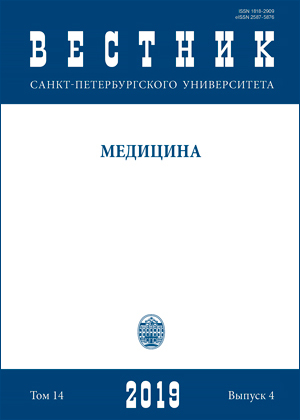Reactions of mice brain to intracerebroventricular injection of thyroid peroxidase antibodies*
DOI:
https://doi.org/10.21638/spbu11.2019.410Аннотация
Hashimoto’s encephalopathy is a rare disease of a presumable autoimmune aetiology. It has been shown that patients with this disease have high levels of anti-thyroperoxidase autoantibodies both in blood and cerebrospinal fluid. Specific astrocyte binding of anti-thyroperoxidase autoantibodies suggests a role of these autoantibodies in the Hashimoto’s encephalopathy pathogenesis. In this study the binding of anti thyroperoxidase with various regions of mice brain after intracerebroventricular stereotaxic injection was assessed. The results revealed no specific immunopositive labels in various brain structures of the mice which were subjected to the intracerebroventricular stereotaxic anti-thyroperoxidase injection. Direct application of human polyclonal IgG with high anti-thyroperoxidase titer on brain sections of intact mice demonstrated the same results. Apparently, absence of immunopositive staining in brain structures in the experiment can be explained by single administration of polyclonal IgG which may not contain enough of antibodies with this specificity. Further investigation of anti-thyroperoxidase binding with brain tissue in conditions of repeated intracerebroventricular administration is required.
Ключевые слова:
Hashimoto’s encephalopathy, Hashimoto’s thyroiditis, intracerebroventricular stereotaxic injection, neuroimmune interactions
Скачивания
Библиографические ссылки
References
Загрузки
Опубликован
Как цитировать
Выпуск
Раздел
Лицензия
Статьи журнала «Вестник Санкт-Петербургского университета. Медицина» находятся в открытом доступе и распространяются в соответствии с условиями Лицензионного Договора с Санкт-Петербургским государственным университетом, который бесплатно предоставляет авторам неограниченное распространение и самостоятельное архивирование.




